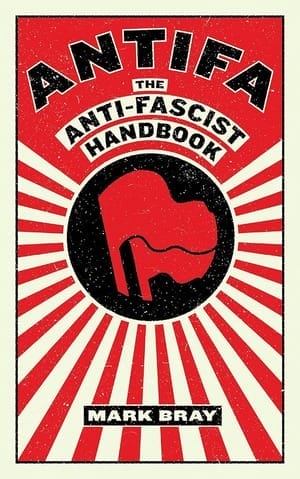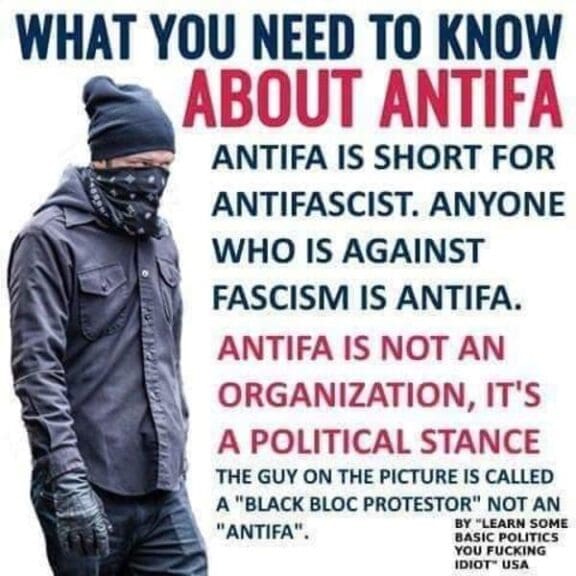I got tired of hearing people use phrases like: “members of antifa” and “antifa destroyed property during the protest.” This widespread misunderstanding often stems from sensationalized media narratives and a lack of clarity on what antifa represents.
To alleviate my frustration, let’s break it down: antifa is an anti-fascist, anti-racist movement, not a monolithic or organized group. Numerous individuals and collectives align under the antifa banner, motivated by a shared goal to combat fascism and protect marginalized communities from oppression.
Understanding the complexities of antifa is important in today’s climate where misinformation can easily spread. The movement is not just about spontaneous reactions to extremist actions; it’s rooted in a long history of resistance against authoritarian regimes.
Antifa in History and Today
From the Spanish Civil War to contemporary struggles against neo-Nazi groups, the spirit of anti-fascism has evolved, yet its core principle remains the same: standing up against tyranny and oppression.
This is especially relevant in current politics, where the rise of authoritarianism has prompted renewed activism. Many activists view antifa’s presence as a necessary counterbalance to the growing influence of far-right ideologies, which they believe threaten democratic values and social justice.
For example, numerous antifa groups have organized neighborhood watch programs to keep their communities safe from hate crimes, while others have focused on providing resources and support to marginalized individuals who may be targeted by far-right groups.
In recent years, the term ‘antifa’ has become a political lightning rod, often weaponized by opponents to discredit broader left-wing movements. It’s essential to recognize that the label does not encompass the diverse array of ideologies and tactics that individuals employ in their fight against oppression.

Ready to be confused?
It’s important to clarify that not every individual on the far left engages in the same tactics. The image of people dressed in all black, often referred to as ‘black bloc’ protesters, is just one aspect of a much broader spectrum of anti-fascist activism.
Many people contribute to antifa’s goals through peaceful protests, community organizing, and educational efforts aimed at raising awareness about the dangers of fascism.
It’s critical for anyone discussing antifa to approach the topic with nuance and an understanding of its historical context. Encouraging dialogue around these issues can help dispel myths and foster a more informed public discourse.
This is especially true when considering the perspectives of those who have historically fought against fascist regimes.
World War II Veterans are Anti-Fascists
Many veterans and civil rights activists resonate with the antifa movement, as they recognize the importance of standing against ideologies that promote hatred and division.
And just as not every person who dresses in all black and carries out acts of violence is anti-fascist, not everyone who is anti-fascist wears all black and commits acts of violence.
Moreover, the meme culture surrounding antifa often misrepresents its ideals, reducing a complex movement to a simplistic caricature. It’s important that we challenge these depictions and foster an understanding of what antifa truly stands for.
Bottom line: antifa is not a monolithic group, and it’s certainly not a “terrorist organization” as Donald Trump has claimed. Instead, it consists of individuals and groups united by a common anti-fascist ethos, each contributing in their way to the fight against oppression.
Fun fact: Congress attempted to pass legislation designating antifa a terrorist group during Trump’s first term. UPDATE: President Trump recently announced that antifa is nowa “terrorist organization” in his second term.
In essence, antifa embodies a commitment to social justice and a proactive stance against hate-driven ideologies. Understanding this movement requires recognizing its historical roots and the diverse ways individuals choose to engage in anti-fascist work.
Many individuals also participate in broader coalitions that address systemic issues, including economic inequality and racial injustice. By tackling these interconnected challenges, they aim to create a more just society for all.
It’s not just a label; it represents a commitment to fighting against the resurgence of fascism and authoritarianism. As society continues to grapple with these issues, understanding the principles and motivations behind movements like antifa becomes increasingly important.
For those looking to dive deeper into the subject, I encourage you to explore resources and literature that provide a variety of perspectives on anti-fascism. This can illuminate the diverse strategies employed by activists and the historical significance of their efforts.
You should also read the article by Rolling Stone: The Neo-Nazi Hunter That Lives Next Door about the leader of a nonprofit organization of Veterans against fascism. He’s amazing and heads several initiatives fighting against an authoritarian takeover of the U.S.
If you hear someone attacking people and labeling them with the term, respond by replacing any mention of “antifa” with “against fascism.”
SOMEONE: “People on the Left are all antifa terrorists.”
YOU: You’re right. Almost everyone on the Left is against fascism, but they aren’t terrorists. Are you saying you’re PRO fascism?”
Many soldiers from past conflicts, including Vietnam War veterans, identified with anti-fascist principles because they fought to protect democracy and freedom.
By labeling these principles as ‘terrorism,’ we dilute the sacrifices made by those who stood against fascism in the past.
Consider following current events and the actions of various anti-fascist groups to understand the ongoing relevance of their work. In a world where the threat of fascism still looms, the fight against it is just as important today as it has ever been.
The fight against fascism is ongoing. By staying informed and engaged, we can play a role in shaping a society where equality and justice prevail, reflecting the values that antifa champions.
Let us not forget that each of us has the power to contribute to this cause, whether through education, activism, or simply by standing in solidarity with those who fight against fascism.
At a time when unity is essential, embracing the principles of antifa can help us forge a better world for future generations.
The fight against fascism is not only a political struggle but also a moral imperative. Engaging with the principles of anti-fascism can help us build a society that is rooted in empathy, justice, and collective responsibility.
Professor Mark Bray
Ultimately, antifa represents a collective response to an urgent challenge in our society. By standing against intolerance and injustice in all its forms, those involved in this movement seek to safeguard the values of democracy, equality, and human rights for everyone.
Professor Mark Bray from Rutgers University, author of The Anti-Fascist Handbook, describes it this way: “antifa is a reaction to the rise of fascism and authoritarianism around the globe. It is a movement comprised of people who resist oppression in various forms, not just through direct action, but also through education, community support, and political engagement.”

“As I explain in my article “Five Myths about Antifa” for The Washington Post, although there are antifa groups, like Rose City Antifa in Portland, Oregon, antifa is not itself a group. Most of what antifa groups do revolves around monitoring far right groups […] Anti-fascists have also been part of Black Lives Matter, Occupy Wall Street and other social movements and have been active in different unions, community organizations and other forms of struggle.”
More from Professor Bray:
From CBS:
“In general, people who identify as antifa are known not for what they support, but what they oppose: Fascism, nationalism, far-right ideologies, white supremacy, authoritarianism, racism, homophobia and xenophobia. Some Antifa activists also denounce capitalism and the government overall”.
Doesn’t that tell you everything you need to know about why Republicans are against Antifa?
The conversation surrounding anti-fascists is not merely an academic discussion; it embodies the struggles of those who fight for justice and equality. Through awareness and dialogue, we can support the movement’s efforts to dismantle oppressive structures and work towards a more inclusive society.
If you know someone who misuses the term pass on this explainer. 👇











